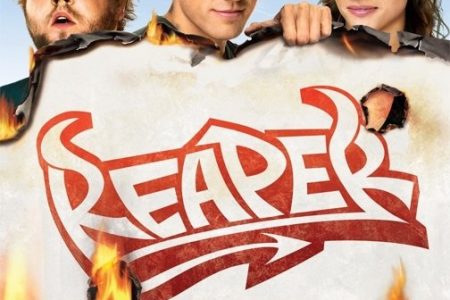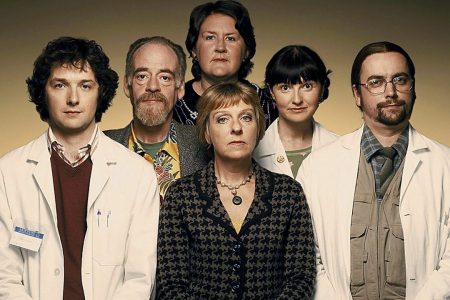Disclaimer: there will be spoilers from the Disney+ show, The Acolyte, in this blog post. I don’t think that will be much of a problem for a show that will not be getting any more seasons, but I thought I should mention it.
SPOILER SPACE
……………………..
……………………..
……………………..
The Acolyte is a television show in the Star Wars universe, set 100 years before The Phantom Menace. It was created by Leslye Headland (co-creator of Russian Doll), who described it as ‘Frozen meets Kill Bill’, which is an excellent pitch for a new show. It received mixed reviews and was cancelled after a season because of low viewership and issues with the budget.
I should say upfront that I am not going to specifically review the show; that’s not the point of this blog post. It will be more a rambling braindump of my feelings about what Star Wars is about to me, precipitated by viewing The Acolyte.
I also want to state that I’m a fan of Star Wars, so I was eager for additional live-action entertainment set within the universe, especially a show set near the end of the High Republic with the Jedi in abundance and at the height of their powers; I also like the idea of a show that is not about the Skywalker saga. I neither liked nor disliked The Acolyte – there is some good stuff and some stuff that I didn’t agree with – but I was still disappointed that it was cancelled.
The show started badly for me by killing Carrie-Anne Moss fairly promptly – I understand that this is a great piece of bait-and-switch: everyone is pumped that Trinity is a Jedi, top billing in the show, then pulling the rug from under the viewers’ feet (apologies for mixing my metaphors) as a way to grab attention. However, even with a woman as the creator and showrunner, I’m never going to enjoy the murder of a woman as the initiating event for a story, sorry.
The show wanted to demonstrate that likeable characters are not safe – the slaughter in episode 5 of the Jedi we had come to know (particularly Dafne Keen’s Jecki Lon) is particularly brutal – and that this was not your usual Star Wars, which to me was one of the problems.
One of the aspects of the show is the idea that the Jedi are not infallible, with decisions made by them to cover up events having consequences later down the line. This is an interesting idea, although I think it misses the point of Star Wars.
Star Wars is essentially about the good guys beating the bad guys – it’s supposed to be a story in which heroes win the day against clear-cut villains, in the tradition of classic myths and legends, as per George Lucas’ following of Joseph Campbell’s The Hero’s Journey. The Empire is bad and needs to be destroyed; the Rebels are doing the right thing against overwhelming odds.
(The prequels missed the point as well because the story of how Anakin Skywalker became Darth Vader is really not that interesting – the enjoyable aspects of that trilogy were seeing Jedi and their power, as well as other corners of the Star Wars universe. The Rings of Power has this problem as well – seeing Hitler, I mean Sauron coming to power isn’t interesting because we know he does, which is why the story is about the heroes beating him; William Goldman’s maxim, “You always come into the scene at the last possible moment” is ignored when it comes to prequels.)
The essence is therefore watching an entertaining story in which good prevails in a simple morality tale that is supposed to inspire (or, to use the paraphrasing of GK Chesterton, “Fairy tales are more than true: not because they tell us that dragons exist, but because they tell us dragons can be beaten.”). That is certainly what I want from a Star Wars story; there can be nuances and shades of grey, but some old-fashioned ‘good-beats-bad’ entertainment. Which is not what The Acolyte did, nor did it set out to achieve that.
In the same way, Andor is not what I look for in a Star Wars story. Andor is extremely well told, with rich characterisation and a multi-layered narrative, but I find it hard to see it as a Star Wars story. It is a hard sci-fi story about the bureaucracy of an evil empire and the beginnings of the rebellion against it, which just happens to be set in the Star Wars universe. (As a wag on social media put it, someone thought, “You know the rebel who found the Death Star blueprints? I wonder what the person was like who was trying to find him, and what was his relationship with his mother?”) Andor would have been a tough sell if it didn’t have the years of world-building that Star Wars has.
The other aspect of The Acolyte which I didn’t enjoy is that it is a show about the start of the Sith, another aspect in which I have absolutely no interest. I enjoyed a swole Manny Jacinto as the Stranger – it was clear as soon as I saw him onscreen that he was the Sith master to Mae’s apprentice – but I don’t want to watch the development of the bad guys as my source of entertainment. The real world in which we live now is showing us the actual rise of fascism in the USA and parts of Europe – I want to escape this unfortunate reality in my television viewing, not see a dramatisation of it but with lightsabres.
I realise that this simplistic view is perhaps at odds with the current desire for more complex and darker storytelling, but I have strong sense of wrong and right (did reading comic books instil this or was I attracted to superhero comic books because of their strong sense of right and wrong? Discuss) and that directly affects my choices of audiovisual entertainment. The Acolyte didn’t work for me because it wasn’t a Star Wars story; it was a story about the consequences of the flawed actions of people with noble intentions but a blinkered view (more or less). Which is fine, if that’s what you want from a Star Wars story; I didn’t, but at least it did something new with franchise. We’ll see what they try next …




